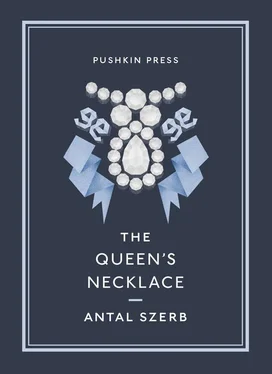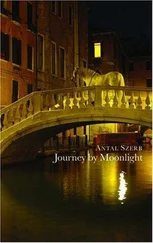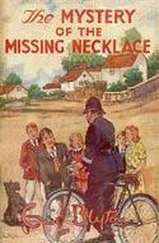But at the same time, given its sense of growing internal weakness, and the increasingly ossified nature of its classicism, the country was more receptive to literature from abroad than it had ever been before or has been since. In particular, there was an outpouring across the Channel of English pre-romantic cloud, storm and blackest night. The plaintive, sepulchral tone came strongly into fashion in France. Young’s tearful dirges, and the gently mournful departing souls of Ossian, haunted everyone. The Comédie Italienne staged a play called Le public vengé , in which the allegoric figure of the National Genius laments:
“Since I was exiled, I have travelled in many lands; there is not one country that does not love my style; everywhere I am sought after — but now I am come home, and behold, I find that everything is given a friendly welcome here except me; here I am the only stranger.”
The French had truly broken through the Chinese wall of the neo-classical past, and made the foreign Muses welcome — but those Muses paid a high price in return. They were required to dress up in the formal garb of the French Court.
Bienséance , the rules of decorum instilled by the ‘Great’ seventeenth century, still held sway, sacrosanct and not to be transgressed. The idea that lay behind them, and the myriad ways in which it was expressed, harmless enough as they might seem to a foreigner, continued to weigh on the delicate sensibility of the French.
Just what this bienséance entailed is shown in this graphic example from Taine. A young noblewoman, having arranged a pension for her tutor, the famous dancing master Marcel, ran to him in delight to show him the document. He dashed it to the floor and cried:
“Mademoiselle, is that what you learnt from me? To proffer a mere object in such a way?”
In literature, bienséance required a strict avoidance of words not current in aristocratic society, thus excluding all scholarly and other specialist terms, as well as diction favoured by the hoi-polloi and the more effusive poets, and, to maintain a lordly generality, nothing was to be described in excessive detail.
Hence Voltaire decided that, for the famous extended simile from the Song of Songs : “His eyes are like doves beside springs of water, bathed in milk”, the correspondingly bienséant version would read: “ un feu pur est dans ses yeux ”—a pure flame is in his eyes. The example shows how bloodless was the poetry that truly conformed to classical taste. Ducis, who adapted Shakespeare’s plays for the French theatre, expunged the fateful handkerchief in Othello on the grounds that an object into which, horribile dictu , a man blows his nose (the French ‘ mouchoir ’ directly mimics this function), could have no place on the national stage, and Desdemona dropped a bit of ribbon instead — which was considered much more elegant.
Let us stay awhile with Ducis. He led Shakespeare to triumph on the French stage, but what he made of him in the process! The plot of Hamlet in his revised version (‘imitée de l’anglais’) runs as follows:
Claudius, is no longer the King but merely the Premier Prince du Sang (the King’s oldest brother, analogous to the Duc de Provence). He tells his confidant, Polonius, that he wants to step into his late sibling’s shoes, but the widow, Gertrude, will not consent to marry him, however politely he asks. Gertrude tells her confidant, Elvire, that, despite having long had an affair with Claudius, her main reason for refusing to marry him is that he incited her to give the poisoned cup to her husband, and she now feels remorse and fears the terrible revenge of her son Hamlet. So she sends for Hamlet’s confidant, Norceste, to come and cheer the prince up a little.
But this will not be easy. Hamlet is in a really bad mood. When we first encounter him, we only hear his voice behind the stage. Something is happening to him that only Voltaire among French playwrights could permit himself to show directly — he is seeing a ghost.
“Avaunt, hideous spectre,” he calls out from behind a backcloth. “What? Do you not see it? It hovers over my head, it dogs my footsteps — it is killing me.”
The ghost behind the backcloth disappears. Hamlet steps out and tells his confidant Norceste that he is in the difficult situation familiar to heroes of all French classical dramas since Corneille — he is torn between love and duty. On the one hand, there is his filial duty to kill the wicked Claudius; on the other, he loves Claudius’ daughter Ophelia, who would take it rather badly if he butchered her father.
Earlier, Claudius has explained the cunning political manoeuvres which have won him prestige and the approval of the people; now he informs us that, as a lunatic, Hamlet could forfeit his claim to the throne. Ophelia tells Hamlet that the time has come for him to make her truly his wife, something not previously possible since his father had forbidden it. Hamlet’s reply is initially evasive, but he eventually tells her that he cannot marry her because he has to kill her father. Ophelia is not pleased to learn that his passion for revenge is stronger than his love for her. She really had not expected that, and she rebukes him in the following terms:
Ah! tu m’as fait frémir. Va, tigre impitoyable,
Conserve, si tu peux ta fureur implacable!
Mon devoir désormais m’est dicté par le tien—
Tu cours venger ton père, et moi, sauver le mien.
Ah! you make me shudder. Go, implacable tiger,
Maintain, if you can, your implacable fury!
My duty henceforth is dictated by yours:
You fly to avenge your father, I to save mine.
Thus the full formula of classical French drama is set in motion: on the one hand Hamlet’s struggle between love and duty, and on the other, the identical conflict inside Ophelia. Now indeed the shades of Corneille could come to terms with the fact that Shakespeare was being performed on the French stage.
Next, Hamlet produces the urn containing his father’s ashes, whereupon his mother confesses all (this is all that is left of their great scene). But, rather than kill her, Hamlet sends her away, since “In my present mood I am capable of anything”. Claudius bursts into the palace with his followers, but Hamlet stabs him with a dagger, and Gertrude kills herself, whereupon Hamlet remarks that she “was a human being, and she was royal”, and tells us he has to live on in the interests of the people, however difficult things might prove.
Since he was four years old — whether you believe this or not, dear reader — the present writer’s single greatest interest has been in history. And yet I have always deeply distrusted the subject as a scholarly discipline. If we could travel in time as we do in space, we would surely have some devilish surprises. When you arrive in a new country for the first time there is usually one outstanding feature that really strikes you, which no one has ever told you about — in France, for example, on every wall you see written in large letters the words ‘ Défense d’ uriner ’, followed by the precise date on which the relevant law was promulgated. Surely the same sort of thing would apply if we were to return to the past. And if we did find ourselves back in 1784, perhaps the greatest surprise of all would be that everyone spoke with a lisp. Of course we would not dare assert this as a fact, having no other evidence than a note to the effect by Mercier, who remarks that sooner or later even stage actors will be starting to affect the mannerism in order to please their audiences. So it is at least a possibility, along with a thousand other oddities which contemporaries never mention since they found them entirely natural.
Читать дальше












